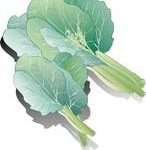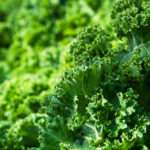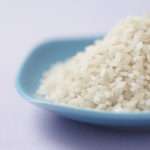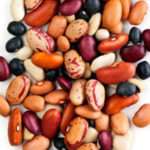Soyfoods, Olive Oil, Beans, and Omega-3s: A Vegan Plan for Reducing Depression

Some ex-vegans say that they became depressed on a plant-based diet. If they did, it was probably due to poor food choices and maybe a lack of recommended supplements. It’s doubtful that a healthy vegan diet promotes depression. In fact, eating more plant foods may have a few advantages for people who suffer from this chronic illness.
Is it possible, though, that vegans are more likely to suffer from depression for a completely different reason?
One small study suggests that vegans and vegetarians respond with more empathy (as measured by brain scans) when they view either animal or human suffering (1). And, not surprisingly, it’s possible that heightened empathy raises risk for depression (2).
Whether or not these findings are true, if you happen to ... Read More >
New Vegan Nutrition Primer on Calcium

There is a wide range of calcium intakes among vegans (just as among omnivores) and the evidence shows that some vegan diets fall short of recommendations. As far as we know, vegans need as much calcium as anyone else. And, with just a little bit of knowledge and some attention to food choices, it’s not at all difficult to get enough. My latest vegan nutrition primer provides simple guidelines for getting calcium from plant foods.
Please share it with anyone you know who is concerned about calcium in vegan diets.
... Read More >Preventing Ex-Vegans: Why Feeling “Normal” Matters

This is my 4th and final (for now) post on tactics for preventing ex-vegans. My thoughts on this topic come from several different types of evidence—including research in vegans and vegetarians as well as research on eating behavior in general.
To summarize, what I’ve already written about:
- People sometimes leave veganism (or vegetarianism) because they no longer believe in its benefits—so overhyping the benefits of veganism, promoting unrealistic expectations (like the idea that you could age like a supermodel) can definitely backfire when it comes to encouraging long-term veganism.
- Likewise, ignoring the issue of ethics can be a mistake. It seems like sometimes we are afraid to talk about it—afraid, in fact, to say that animals matter. The truth is that ethics is a ... Read More >
Preventing Ex-Vegans: Why Nutrition and Nutritionism Matter

Eating healthy whole foods is important—and so is paying attention to individual nutrients. Lately, though, that’s become an unpopular thing to say. It’s what food activists like Michael Pollan refer to as “nutritionism.” That is, he and others say we should stop worrying so much about nutrients and just eat food (or “real” food as they refer to it). As physician David Katz says “If you eat whole foods, the nutrients sort themselves out.”
But this is not exactly a science-based observation; it’s an opinion or at best a hunch or casual observation of the world. Pithy observations like this make for engaging writing and perky sound bites, but not always great advice.
To be fair, though, unlike Pollan whose understanding of nutrition is shaky, ... Read More >
Preventing Ex-Vegans: The Power of Ethics

Helping people go vegan is great. But it’s meaningless if we can’t help them stay vegan. Last week, I wrote about how overhyping the benefits of a vegan diet can result in ex-vegans. One of the reasons people abandon vegan diets is that they lose faith in its benefits. That’s more likely to happen if the claims are far-fetched.
We also run the risk of losing vegans (and vegetarians) when we skip over discussions about ethics. While health may motivate many people to go vegan or vegetarian, ethics seems to be more “sticky.”
As I’ve been delving into this issue of preventing recidivism, I’ve looked at quite a bit of data including:
- Surveys of ex-vegetarians (from Faunalytics, the Toronto Vegetarian Association, and psychologists Childers ... Read More >
Will Going Vegan Make You Look Like Christie Brinkley?

Christie Brinkley turned 61 this year, and she looks pretty great. Incredible in fact. How does she do it? According to some vegan blogs and facebook posts, she credits her vegan diet.
That’s funny, because I’m about Christie’s age and have been vegan for some 25 years. And despite my diet, the years haven’t been quite as kind to me as they’ve been to Christie. It’s no big mystery as to why that is. And it has nothing to do with the way we eat.
In a People magazine article last year, Christie said this: “I think that there are so many other noninvasive choices that address sagging, wrinkling and discoloration. I go to my dermatologist about once a month and get special facials. I ... Read More >
Celebrities, Weight Loss and Penn Jillette’s New Vegan Diet

The vegan internet is abuzz over Penn Jillette’s (of Penn and Teller fame) recent weight loss and his current plant-based diet. But when it comes to celebrities, weight and veganism, I’m always more than a little cautious.
Here are three reasons why I think it’s a mistake to view Penn’s experience as good PR for veganism.
- He lost weight on a very low calorie diet (which may or may not have been vegan; he hasn’t said). He reports that he lost 100 pounds in 100 days. That’s quite an accomplishment and I don’t mean to dismiss it in any way. But fast weight loss due to extremely low calorie intake is hard to sustain. Only time will tell whether he is able to maintain ... Read More >
Vegan Diets to Reduce Colon Cancer Risk

The latest findings from the Adventist Health Study-2 (AHS-2) found that people who ate plant-based diets—which included vegans, lacto-ovo vegetarians and pesco-vegetarians—had a 22% lower risk of colorectal cancer (1).
But when the researchers pulled the subjects apart into more specific groups, the only group of “vegetarians” with a lower risk were the ones who ate fish. Their risk was 43% lower than the omnivores in this study. While vegans and lacto-ovo vegetarians also had a lower risk for colon cancer, these findings weren’t statistically significant.
The only other large scale study to look at colon cancer in vegetarians is the EPIC-Oxford Study in England and this research found no protection from a vegetarian diet (2).
So what exactly are we to make of these ... Read More >
White Rice, Resistant Starch and Vegan Diets

One of last week’s big nutrition news items was about a method to reduce the calories in white rice. Researchers from Sri Lanka found that when you add a small amount of fat to white rice during the cooking process, and then refrigerate the cooked rice for at least 12 hours, the result is a higher content of resistant starch.
Resistant starch is starch that is poorly digested in the small intestine, and there is lots to like about it. Since it isn’t well digested and absorbed, this type of starch provides fewer calories than other carbohydrates. It also stimulates growth of good bacteria in the colon and production of short chain fatty acids. These fats may lower the pH of the intestines which inhibits ... Read More >
Protein from Plants: A Primer for Vegans

Getting enough protein on a vegan diet is pretty easy. But it doesn’t mean that every single vegan meets protein needs. Eating too many junk foods, avoiding legumes, or skimping on calories can all cause protein to fall short of optimal intake.
My second nutrition primer is on plant protein and vegan protein requirements. It summarizes the most important issues that vegans need to be aware of. Here is the link to the primer. Let me know if you have questions about it.
... Read More >